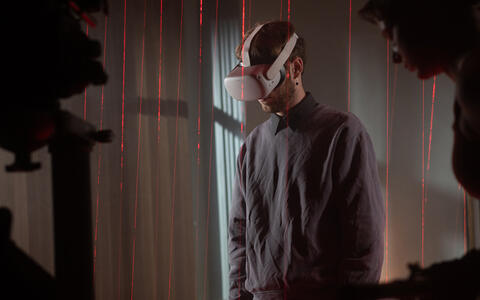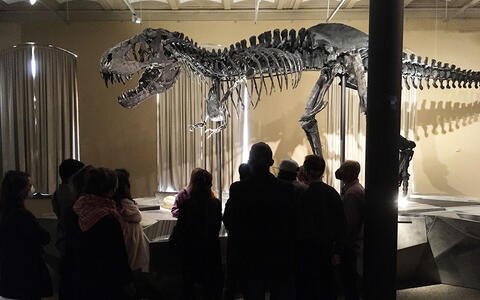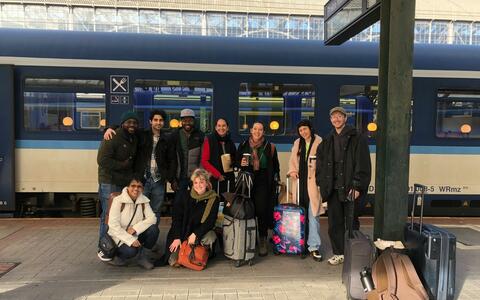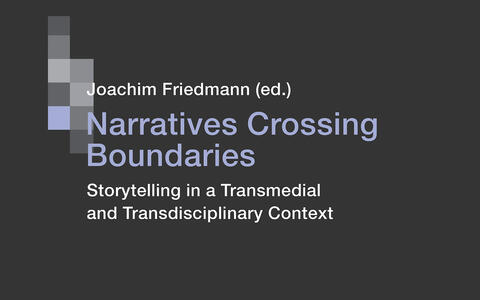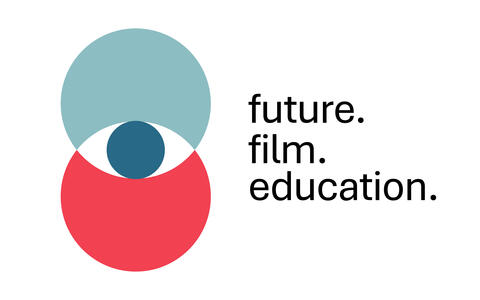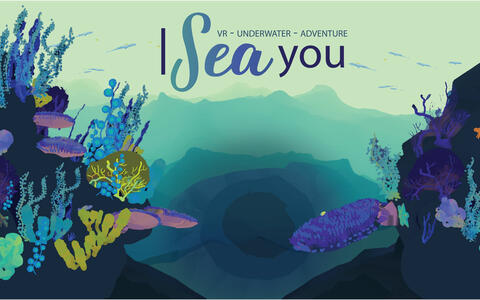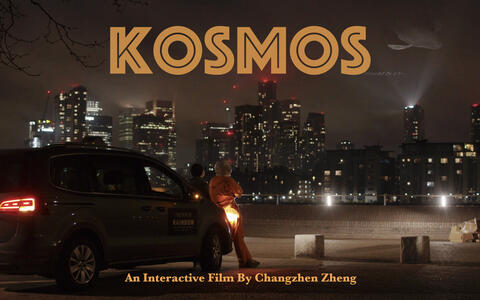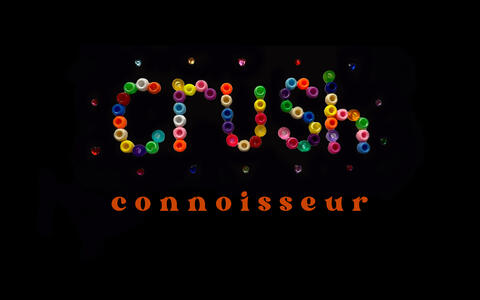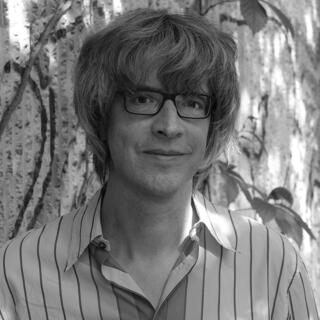Research
research at the ifs
Introduction
All study programs at the ifs have an artistic and research profile, with the aim of pursuing artistic and social excellence and innovation. Film and media studies are an integral part of all curricula at the BA and MA levels.
Beyond engaging with theory in teaching and learning, students and lecturers also get involved in proper BA, MA or independent research projects aligned with ifs’ privileged approach to research: research-creation.
Research-creation
Research-creation can be research-led or practice-led but in any case, incorporates a creative component. In research-creation, the mode of inquiry is iterative, moving constantly between practice and theory. Research-creation studies generally include a creative project in the form of a prototype (or process) - which tends towards professional standards; a written text - that complies with high academic standards; and a documentation of the creative project.
News
Neuigkeiten aus dem Forschungsbereich (Auswahl)
Research Focus
Professors and Team
Co-creation, collective memory, diversity
Digital & internet theory, impact studies
Theory and History of Digital Media, Art and Communication, Game Studies
Film studies, aesthetic education, film education
New Technologies, Mixed Realities, Audience Design
Student research within the framework of the degree programmes
BA Film
Student research projects In the third semester of the Bachelor's degree programme in Film, students have the opportunity to pursue an artistic research project as part of their coursework to be completed. Artistic and scientific research can be pursued in all disciplines and transdisciplinarily.
MA Digital Narratives
The Digital Narratives Master’s program gives students the opportunity to use artistic and scientific research in the field of innovative narrative forms to develop master’s projects which pursue approaches that go beyond the needs of the market. In a learning and research community with fellow students and lecturers, students develop new artistic, technological and entrepreneurial ideas and projects. The development process is always understood as a process of research-creation. Students are invited to define their own research focus and questions and to pursue them within the framework of their project work. Part of these studies is also the research of methods and technologies used in project work.
MA Serial Storytelling
In the Master's programme Serial Storytelling, the second year of study is dedicated to researching and developing innovative serial formats, building on the knowledge and skills acquired in the first year of study. After a detailed analysis of the current market situation and future trends in the seminar "Current and Future Serial Formats", the students work on an artistic research project on the topic of "Innovation in Serial Storytelling" during the lecture-free period. In doing so, they engage in intensive research on perspectives of serial narrative and thus broaden their professional horizons with a view to unusual serial narrative forms.
Research Projects
Student Projects (Auswahl)
African Folktale
»African Folktale: Storytelling for Sustainable Development«
Research Cooperation | 2022 - 2024 | Georg Forster Research Fellowship of the Alexander von Humboldt Foundation
As host research institution, the ifs Internationale Filmschule Köln supported the Nigerian film scholar and Humboldt Fellow Dr. Ezinne Ezepue and her research project "African Folktale: Storytelling for Sustainable Development".
Dr. Ezinne Ezepue
Dr. Ezinne Ezepue is an expert on African storytelling with a focus on the Nigerian film industry ("Nollywood"). She teaches Film, Nollywood Studies and Documentary Filmmaking at the University of Nigeria. As part of her vision to empower African youth to tell authentic African stories, she hosts the Africa on Script initiative. In her 2018 PhD, Dr Ezinne Ezepue investigated possible gentrification of Nollywood.
The research project
The research project "African Folktale: Storytelling for Sustainable Development" addresses the question of what constitutes storytelling on the African continent and how indigenous storytelling traditions can contribute to decolonisation and sustainable development. The focus is on the strong influence of the medium of film - with special attention to the "Nollywood" films of the Nigerian media industry - on African society. A narrative analysis of selected Nollywood films will be used to determine the extent to which classics of the genre can be considered genuinely African, which narrative modes have been adopted by diasporic cinema and to what extent Western paradigms dominate the narrative modes. On this basis, the research project aims to shed light on how a reinterpretation of African narratives can succeed in promoting a decolonisation of the African film industry, contribute to the preservation of cultural heritage and thus strengthen an indigenous cultural and social identity.
The two-year research cooperation at the ifs was supervised and supported by screenwriter Prof. Dr. Joachim Friedmann (Professorship Serial Storytelling until June 2025), who has taken the lead in facilitating the collaboration. With their joint research, the two academics are also trying out new ways of collaboration: through their different expertise, European and African, film practice and film studies perspectives flow into the project.
future.film.education
»future.film.education – Online Teaching and Diversity in European Film Schools«
European Research Project | 2021 - 2023 | Co-funded by the Erasmus+ Programme of the European Union.
The aim of the European research project is to contribute to a more innovative, inclusive and diverse film and higher education - both on- and offline.
Future.film.education was initiated by the ifs internationale filmschule köln in cooperation with the Moholy Nagy University of Art and Design (MOME) in Hungary and the Cooperativa de Formação e Animação Cultural (COFAC) of the Universidade Lusófona in Portugal.
Within the framework of the project, research groups developed the following:
- a toolkit on online teaching
- a toolkit on diversity
- a Massive Open Online Course (MOOC) on Diversity in Film and Media for European film and art schools
The toolkits include course materials, best practices, guidelines and a self-assessment survey. The MOOC includes 14 modules on gender theories, queer studies, representation of people with disabilities, decolonisation in film studies, among others.
The three offerings are intended to both improve online teaching and address (in)equality in education, as well as to support the development of strategies to introduce diversity and inclusion as study goals and to establish them as a central concept in higher education.
The toolkits and the MOOC are available free of charge on the website.
Clash of Realities
»Clash of Realities – Conference on the Art, Technology and Theory of Digital Games««
Conference | 2006 - 2022 | Project sponsors included the Film- und Medienstiftung NRW, the City of Cologne and Electronic Arts
Once a year since 2006 until 2022, the TH Köln has organised the conference "Clash of Realities - Conference on the Art, Technology and Theory of Digital Games" in Cologne. The conference has offered experts, teachers and students from a wide range of disciplines interdisciplinary exchange within the framework of lectures, presentations, discussion rounds and workshops on design, technological developments and the social perception of digital games.
The Cologne Game Lab and the Institute for Media Research and Media Education at the TH Köln, the ifs Internationale Filmschule Köln, the Institute for Media Culture and Theatre at the University of Cologne, Electronic Arts, Eyes and Ears of Europe and the AG Games were responsible for the content.
Initiators: Prof. Dr. Gundolf S. Freyermuth (ifs / CGL), Prof. Björn Bartholdy (CGL)
